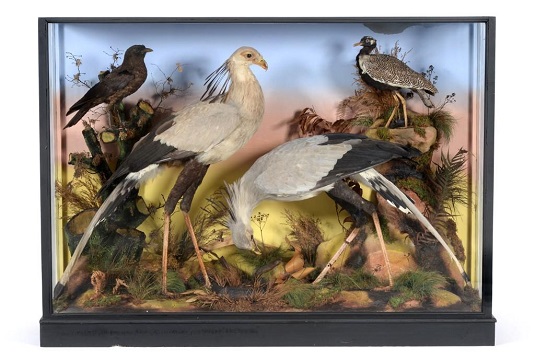Additional CITES Ports for no-deal Brexit
The UK Government has confirmed that an additional four ports – Belfast Seaport, Dover, Eurotunnel and Holyhead – will be designated to handle movements of protected animals or plants, to be sure there is enough capacity to transport CITES products in the event of a no-deal Brexit.
The announcement means that if the UK leaves Europe without a deal, anyone wishing to bring a specimen of a protected species of animal or plant into the UK or export to the EU will require a CITES document. Such documents must be applied for in advance of travel and inspected and endorsed (stamped) by Border Force at a CITES-designated point of entry or exit.
 The Convention on International Trade in Endangered Species of Wild Fauna and Flora (CITES) is an international agreement between governments which aims to ensure international trade in specimens of endangered animals and plants does not threaten their survival. CITES agrees varying degrees of protection to species of animals and plants, whether trading or moving live specimens or their parts, from antiques and zoo animals, to musical instruments and herbal remedies.
The Convention on International Trade in Endangered Species of Wild Fauna and Flora (CITES) is an international agreement between governments which aims to ensure international trade in specimens of endangered animals and plants does not threaten their survival. CITES agrees varying degrees of protection to species of animals and plants, whether trading or moving live specimens or their parts, from antiques and zoo animals, to musical instruments and herbal remedies.
The Government has published updated guidance which sets out how people who trade in, or travel with, protected animals or plants and their derivatives, will be affected when the UK leaves the EU.
International Environment Minister, Zac Goldsmith said, “CITES plays a key role in protecting endangered species and we will continue to champion its aim after we leave the EU. While the Government is seeking a deal, we have stepped up our preparations and will be ready to leave the EU on 31 October, whatever the circumstances.
“Part of this is designating further ports, including Eurotunnel and Dover, so that people and businesses can still trade and move CITES specimens with minimal disruption.”
All CITES specimens that are currently freely moved and traded between the UK and the EU will require CITES documents. This means movement of all CITES specimens between the UK and the EU will need to follow the same processes as those currently in place for movement between the UK and non-EU countries. Applications for CITES documents permitting movement of CITES specimens into and out of the UK will be processed by the Animal and Plant Health Agency (APHA).
For CITES specimens that may also require plant or animal health certification, a CITES document does not replace the need for veterinary or phytosanitary inspection and certification.
